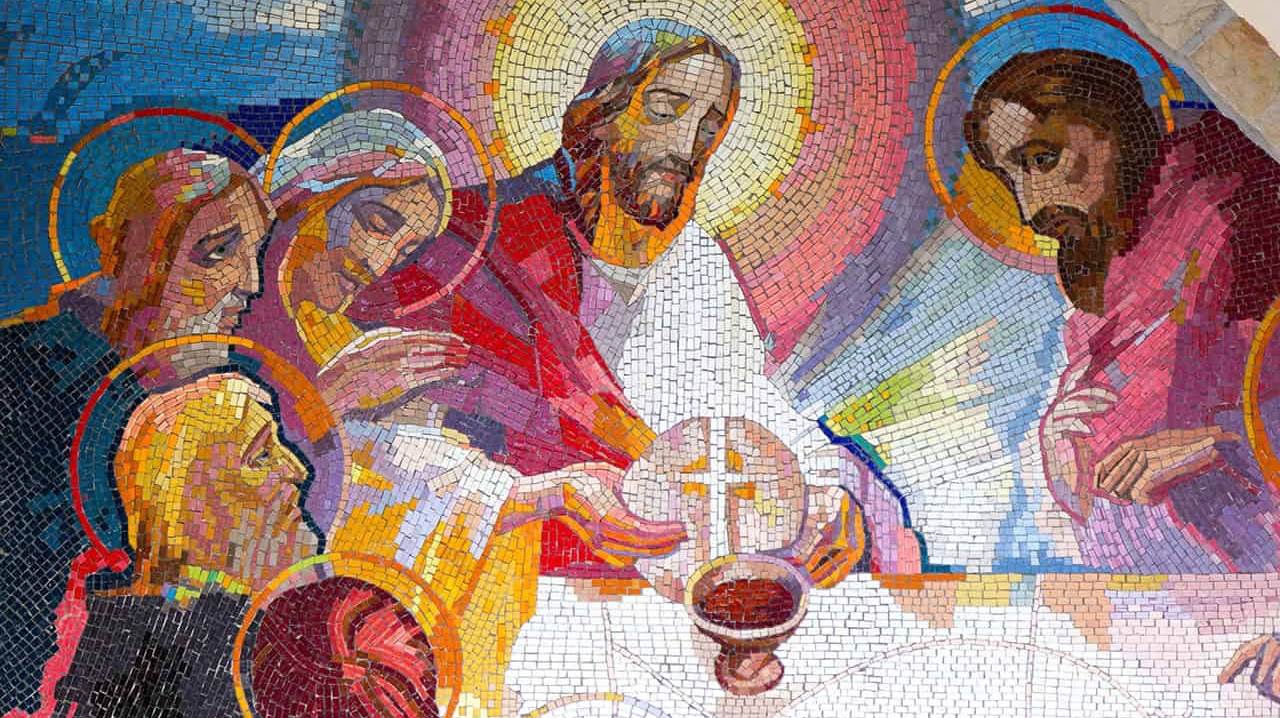If we were aficionados of the comic strip Peanuts, we remember that loveable little boy named Charlie Brown. For many reasons, his common response was “Good grief.” Although it may be a popular term, it is more than just an idiom. The reasons that can cause us to say good grief seem endless. It could be a response to an irritation, surprise, dismay, or another emotion that is usually negative.
So where does the good come in? Despite the often insignificant everyday usage of “good grief” and its apparent origin, the words do have a serious appropriateness, both in themselves and to their connection with God. It is said that good grief is a euphemism for “good God,” that could mean we grieve a loss, but still maintain our faith in God who is all good. Even in the midst of whatever causes us grief, we can find comfort and hope in God’s love and mercy. We believe that he can eventually bring good out of the deepest of grief thus allowing grief to lead us closer to him through the absorption of, and reliance on, his goodness. God allows no evil from which greater good cannot be derived.
Because of the many losses we experience throughout life, the grief associated with them varies in intensity and in time. A petty irritant is minor, hardly a disturbing grief, while the death of our child is severe, and leaves an empty place in our heart for a lifetime. Time periods for grief can last for a short time or be long term. Although grief lessens and softens with time, it is not unusual for signs of grief to come back at unexpected times and unusual places without warning.
Grief is an essential and ordinary part of the human experience. Jesus shed tears at the grave of Lazarus. Jesus wept, knowing that he would raise Lazarus from the dead. He had hope in the future and knew joy was coming, but still cried. Jesus teaches us to embrace the darkness of loss, let it fall into our hearts, and then look to the slow rising dawn of a new and broader horizon.
We need to acknowledge our grief, for it is unique to each loss and to each person who experiences it. Loss is myriad, involving persons, places, or things, and the importance of each loss to us. Each person is different in circumstances, character, values, personality, beliefs, culture, and life experiences. Managing grief is essentially up to us, through what we know about it, our ability to deal with it, and our response to grace.
When our grief is new or raw, self pity is expected. And we may be overcome by it if we feel isolated, only think about the negative facets of our loss, or dwell on ruinous problems that could happen. Self pity becomes problematic if it leads to destructive tendencies such as deficient self care, clinical depression, or other aberrancies. Moving out of self pity occurs when we see a candle flame flickering in the dark, move closer to that light, and began transformation into hope. We come out of ourselves when we realize we are not alone in our grief and the spotlight on I and me broadens to include we and us. It is a beautiful occurrence to watch self pity evolve into growth producing self discoveries. Francis de Sales tells us, “We shall steer safely through every storm as long as our heart is right, our intention fervent, our courage steadfast, and our trust fixed on God.”
During the stormy seas of serious grief, it is easy for guilt to become part of the chaos. Trusting in God, and maintaining a right heart, keeps fact separate from inordinate desires or emotional responses, and remorse in the right perspective. However, if we survive a disaster, and dear ones do not, guilt can cause serious pain. It seems like everyone experiences some type of survival guilt during their lives. It happens during natural disasters, wars, terrorist attacks, pandemics or other catastrophic events. At a deep level it causes severe self doubt, significant confusion and worry. The big question that arises from guilt is “Could I have done more?” If we did all we could that was reasonable, and within our abilities, we can lay that question to rest. We remember medicine has its limits. There is more that is unknown than what is known about medicine. We also would not have wanted a dear one to undergo painful experimental treatment. We hold on to our trust in God, and accept ourselves, and our laws, within the circumstances that are beyond our control. Not all things work out right, have meaning, make sense, or have a reason. We are all flawed. Every organization in the world has flaws. With our flaws, confidence in the goodness of humanity, positive responses to grace, and security in the beneficence of God, we work together to make this world a better place.
Companions on the Way
How we respond during a grief event is just as important as how we respond after a grief event. Grief is like an uncharted territory where we experience starts, stops, dark, light, rugged terrain, rest spots, setbacks and progress. Travel is rough and smooth, hard and easy, and we get lost and found. When travel is difficult, we remember there are persons who have traveled this road before us from whom we can learn, and there will be persons who travel this road after us who may learn from us.
The ability to console others well about grief is a noble and tactful art. A young widow’s only child dies. A married couple whose child died a few years ago spends quiet time with her at the funeral home and after the burial. Their quiet presence does more for the mother than most of the words well meaning people offer. Silent presence is a helpful start in the long process of healing.
During this process we realize grief time is a sacred time set apart from our ordinary daily activities. It can be a special time for deep thoughts, or reflections about the good that was part of our loss, a favorite room in a house no longer ours, or a favorite poem or song of a dear one. Remembering pleasant, heart warming happenings softens and quells the harsh pain of grief.
Walking with persons in grief is a sensitive time. We recognize their vulnerability and refrain from forming judgments, being condescending, offering pious platitudes, or giving unsolicited advice about how they should feel or what they should do. If they talk about not being needed, we might suggest something they could do. If we do say something, it should come from careful listening for example, when they talk we do not interrupt with stories about ourselves unless we are asked. To be in the dark with someone who is in the dark creates a supportive bond. Sitting in the darkness takes more courage than standing outside the dark and talking about the light. Talk is secondary because most of the time we do not have the right words to offer. Sharing pain by listening with the heart, providing a hand to hold or a shoulder to cry on, maintaining eye contact, and not forcing people to talk about things if they do not wish to do so, can build trust, provide solace and be a greater comfort than sweet words. A quiet presence suggests, let’s face this together. We remember grief time is about them and not about us. We show our concern by nodding to show we are listening and acknowledging their feelings by short comments such as “That must have been difficult,” or “That must be hard for you.” We have no expectations other than being in the moment with them. We are not there to set goals or outline a strategy. Each loss is different and has its own set of burdens. We do what we can and leave the rest to God.
God and heaven can seem very distant at the start of deep grief. Suddenly faith can be like a freezing winter. God seems cold, distant, and even absent. Harriet Beecher Stowe wrote to a friend: “When the heart strings are suddenly cut, it is, I believe, a physical impossibility to feel faith or resignation; there is a revolt of the instinctive and animal system, and though we may submit to God, it is rather by constant painful effort than sweet interaction.” In time, and through painful effort, somehow in the darkness God is there.
Where is the Good in Grief?
“Measure thy life by loss and not by gain, not by the wine drunk but by the wine poured forth. For love’s strength stands in love’s sacrifice and he that suffers most has most to give.” (Ugo Bassi) These words are worth ruminating because they open the door to good found in grief.
Unlike Charlie Brown, after careful reflection the words “good grief” go beyond something we say. They concern something good we do or the good that is done to us. Goodness can emerge from grief as we meet its challenges in a realistic way. Henri Nouwen tells us, “You choose to live your losses as passages to anger, blame, hatred or resentment, or you choose to let these losses be passages to something new, something wider and deeper. The question is not how to avoid loss and make it not happen, but how to choose it as a passage, as an exodus to greater life and freedom.” If we find goodness in our grief, it leads to a deeper experience of living. We lay aside feelings that focus on the negatives of our loss, focus on the good memories in our loss, and start or find an activity that helps others as a result of our loss. Feeling immobilized by sadness at what has been lost can be replaced by the prospect of finding goodness along the way ahead because our emphasis is on the common good instead of goods for me.
Marcel Proust wrote, “Happiness is beneficial for the body but it is grief that develops the powers of the mind.” How does grief develop our mind? We may write a poem, essay, song, or booklet about our dear one who has died and include their gifts, talents, personality traits, character, impact on our life, and why they were an inspiration to us. This would honor their memory and share their life with relatives who did not know him or her. We could establish a scholarship, plant a tree, or start a garden in memory of a loved one. Through good grief we go beyond the pain as grief is transformed into purpose. Significant grief makes us more compassionate toward the anguish of others as we respond with active love to a marginalized group of people, a good cause, or a needed service. Well channeled grief expands the heart and soul. We grow in our love for God, others, and ourselves in ways we never dreamed because a loss has the power to stimulate spiritual and human development. And, with grace, we learn to live with paradox, conflict, and unanswered questions.
Jesus promised that not a single sparrow will fall from the sky without God our Father knowing it. We are worth much more than sparrows. We are so precious to God that he sent his only son into the world to die on the cross for us. We need to cling to this truth, especially when grief overwhelms us. Christ is fashioned anew within us when our thoughts no longer center on our grief issues. Our trust in God is greater than our problems related to loss. We seek God in our grief, knowing that he seeks us more. With God’s help, we can pour love into situations or circumstances that cause us grief and thereby draw out love which unfurls into good actions.
Our greatest good is Jesus Christ. It is said that knowledge is power, but more importantly it reduces fear. Therefore, it is our sacred duty to learn as much as we can about Jesus, which is the greatest adventure known to humankind. The apostle Paul said, “In Christ dwells all treasures and wisdom.” (Colossians 2:3) John of the Cross offers a thought provoking addition: “There is much to fathom in Christ for he is like an abundant mine with many recesses of treasures, so that however deep individuals go, they never reach the bottom, but rather in every recess find new veins with new richness everywhere.” The crucifixion of Jesus shows us how the greatest evil was overcome by a greater love. Through his death, the gate of future glory was opened for us.
The ancient greyness shifted
Suddenly and thinned
Like mist upon the moors
Before the wind.
An old, old prophet lifted
A shining face and said:
“He will be coming soon.
The Son of God is dead;
He died this afternoon.”
A murmurous excitement stirred
All souls.
They wondered if they dreamed –
Save one old man who seemed
Not even to have heard.
And Moses, standing,
Hushed them all to ask
If any had a welcome song prepared.
If not, would David take the task?
And if they cared
Could not the three young children sing
The Benedicite, the canticle of praise
They made when God kept them from perishing
In the fiery blaze?
A breath of spring surprised them,
Stilling Moses’ words.
No one could speak, remembering
The first fresh flowers,
The little singing birds.
Still others thought of fields new ploughed
Or apple trees
All blossom-boughed.
Or some, the way a dried bed fills
With water
Laughing down green hills.
The fisherfolk dreamed of the foam
On bright blue seas,
The one old man who had not stirred
Remembered home.
And there He was
Splendid as the morning sun and fair
As only God is fair.
And they, confused with joy,
Knelt to adore
Seeing that He wore
Five crimson stars
He never had before.
No canticle at all was sung
None toned a psalm, or raised a greeting song.
A silent man alone
Of all that throng found tongue –
Not any other
Close to His heart.
When the embrace was done,
Old Joseph said, “How is Your Mother,
How is Your Mother, Son?”
+ Sister Mary Ada CSJ






























